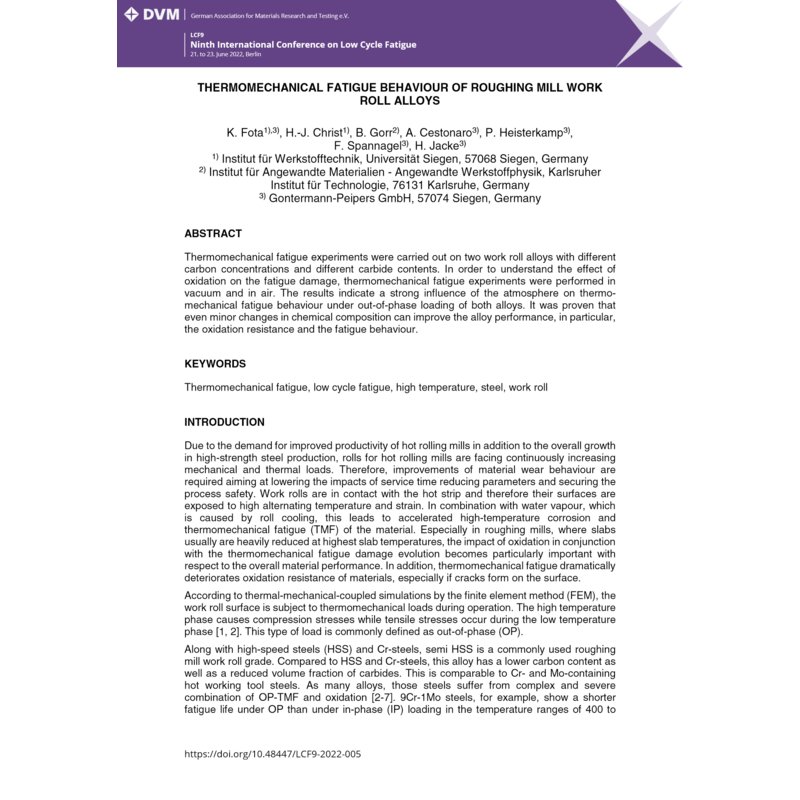- Nur online erhältlich



Due to the growth of high-strength steel production, rolls for hot rolling mills are facing higher mechanical loads and increasing contact temperatures. Therefore, continuous improvements of wear behaviour and process safety are required. Work rolls are in contact with the hot strip and therefore their surfaces are exposed to both, high alternating temperature and strain. In combination with the water vapour, which is caused by roll cooling, this leads to accelerated high-temperature corrosion and thermomechanical fatigue of the material. In roughing mills, where several high deformation passes at highest temperatures are carried out, the impact of oxidation on the thermomechanical fatigue damage evolution (and vice versa) might be of particular importance.
The…

Datenschutzbedingungen (bearbeiten im Modul "Kundenvorteile")

Lieferbedingungen (bearbeiten im Modul "Kundenvorteile")

Rücksendebedingungen (bearbeiten im Modul "Kundenvorteile")
Due to the growth of high-strength steel production, rolls for hot rolling mills are facing higher mechanical loads and increasing contact temperatures. Therefore, continuous improvements of wear behaviour and process safety are required. Work rolls are in contact with the hot strip and therefore their surfaces are exposed to both, high alternating temperature and strain. In combination with the water vapour, which is caused by roll cooling, this leads to accelerated high-temperature corrosion and thermomechanical fatigue of the material. In roughing mills, where several high deformation passes at highest temperatures are carried out, the impact of oxidation on the thermomechanical fatigue damage evolution (and vice versa) might be of particular importance.
The objective of the study presented is to improve the understanding of damage mechanisms and damage evolution in roughing mill rolling processes, especially the interaction between oxidation and thermomechanical fatigue. The oxidation behaviour of a roughing mill work roll alloy itself and a modified version of it were investigated in a prior study by thermogravimetric analysis. By means of the finite element method (FEM), the periodic variation of temperature, stress, and strain at the roll surface was calculated for the experimental study. Based on the results obtained, isothermal and thermomechanical fatigue experiments were carried out on both work roll alloys. In order to understand the effect of oxidation processes on the fatigue damage, some thermomechanical fatigue experiments were also performed in vacuum. The lesser carbide phases and higher corrosion resistance of the modified version of the alloy will also help to clarify the impact of oxidation to thermomechanical fatigue behaviour. Furthermore, samples from worn out work rolls were taken and analysed, in order to compare real damage mechanisms with those occurring under laboratory conditions. The results of both, thermomechanical fatigue experiments and work roll damage analysis will be presented and discussed in this contribution.